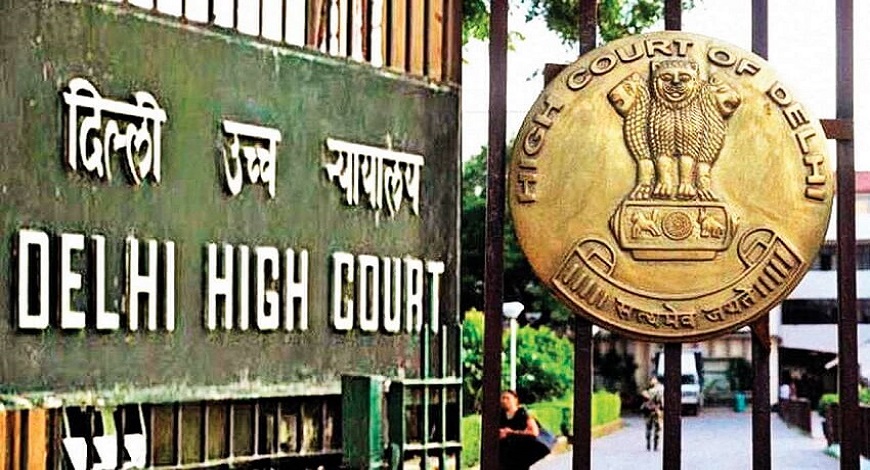The Delhi High Court has recently disposed of the petition seeking the setting aside of the rejection of questions by the Court of Special Judge, PC Act, CBI-4, Rouse Avenue Courts, New Delhi during the cross-examination of witness on 26.11.2021.
Further, the petitioner has sought a direction to the Court of Special Judge, Prevention of Corruption Act, Rouse Avenue Courts not to decline questions which are relevant to the subject matter of the trial.
Prashant Mendiratta, the counsel for the petitioner, has relied upon the judgment of Bipin Shantilal Panchal vs. State of Gujarat, (2001) 3 SCC 1 and more particularly para 12, 13 and 14 which read as under:
“12. As pointed out earlier, on different occasions the trial Judge has chosen to decide questions of admissibility of documents or other items of evidence, as and when objections thereto were raised and then detailed orders were passed either upholding or overruling such objections. The worse part is that after passing the orders the trial court waited for day and weeks for the parties concerned to go before the higher courts for the purpose of challenging such interlocutory orders.
13. It is an archaic practice that during the evidence collecting stage, whenever any objection is raised regarding the admissibility of any material in evidence the court does not proceed further without passing order on such objection. But the fallout of the above practice is this: Suppose the trial court, in a case, upholds a particular objection and excludes the material from being admitted in evidence and then proceeds with the trial and disposes of the case finally. If the appellate or the revisional court, when the same question is recanvassed, could take a different view on the admissibility of that material in such cases the appellate court would be deprived of the benefit of that evidence, because that was not put on record by the trial court. In such a situation the high court may have to send the case back to the trial court for recording that evidence and then to dispose of the case afresh. Why should the trial prolong like that unnecessarily on account of practices created by ourselves. Such practices, when realized through the course of long period to be hindrances which impede steady and swift progress of trial proceedings, must be recast or remoulded to give way for better substitutes which would help acceleration of trial proceedings.
14. When so recast, the practice which can be a better substitute is this: Whenever an objection is raised during evidence-taking stage regarding the admissibility of any material or item of oral evidence the trial court can make a note of such objection and mark the objected document tentatively as an exhibit in the case (or record the objected part of the oral evidence) subject to such objections to be decided at the last stage in the final judgment. If the court finds at the final stage that the objection so raised is sustainable the Judge or Magistrate can keep such evidence excluded from consideration. In our view there is no illegality in adopting such a course. (However, we make it clear that if the objection relates to deficiency of stamp duty of a document the court has to decide the objection before proceeding further. For all other objections the procedure suggested above can be followed.)”
Mendiratta has drawn my attention to two questions in the cross-examination of the witness. The first question and the response were as under:
“Q: On which date you visited the CBI office personally? Questions were declined since it has already come in the examination-in-chief of the witness and the cross-examination cannot be permitted on a fact which has already come in the examination-in-chief. I went to CBI headquarters at CGO Complex on that day around 10-10.30 am and I was alone. I do not recollect if I made any entry at CBI office regarding my visit. It is correct that there are security guards at the entrance of CBI office who get the entry register signed after getting the particulars of the visitors.
The second question was as follows: Q: Did you meet anybody else that day after you say that you gave the complaint to SP, CBI? Court observation:- The question is very vague and otherwise also, it has come in the examination-in-chief that SP, CBI directed some inspector in CBI to verify the complaint.
While considering the submission, a single bench of Justice Jasmeet Singh was of the view that the directions of the Supreme Court need to be followed in its true letter, spirit and intent.
“If the Court finds that any question put by the defence is inadmissible or not relevant, the Court should record its observation and thereafter permit the witness to answer the question. The question whether the evidence is to be included or excluded from consideration while pronouncing the final verdict is to be taken at the end and not at the time of examination,” observed the Court.
The question is to be adjudicated at the final stage as recommended in the judgment of Bipin Shantilal Panchal (supra), held by the Court.
In this view of the matter, it is directed by the Court that the observations of the Supreme Court in Bipin Shantilal Panchal (supra) para 12 to 14 shall be kept in mind.
Further while disposing the petition, the Court, while noting that witness is still under cross-examination, it is directed by the Bench that the second question be answered by the witness and the observations of the Special Judge, PC Act would be decided at the final adjudication stage.


